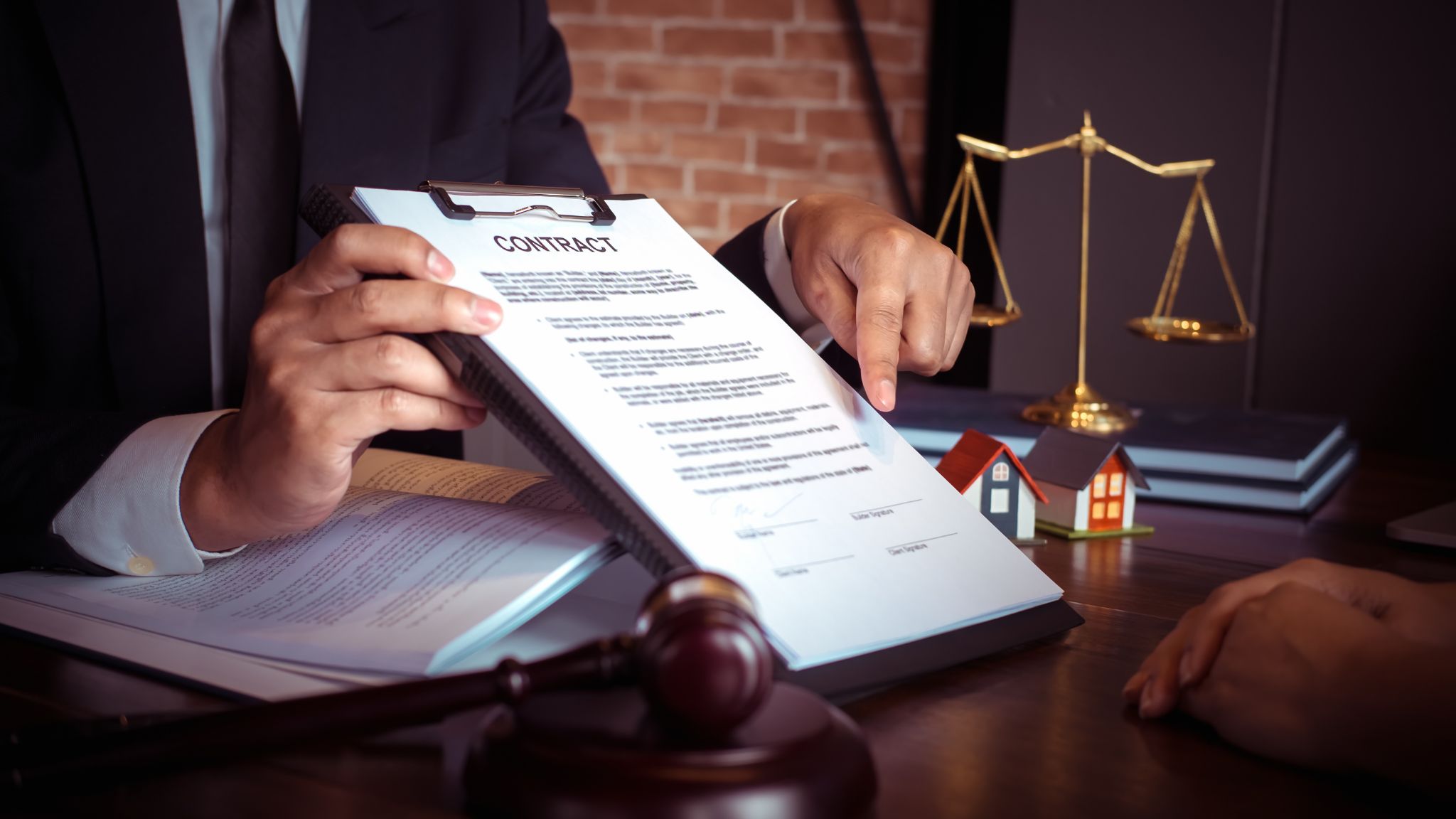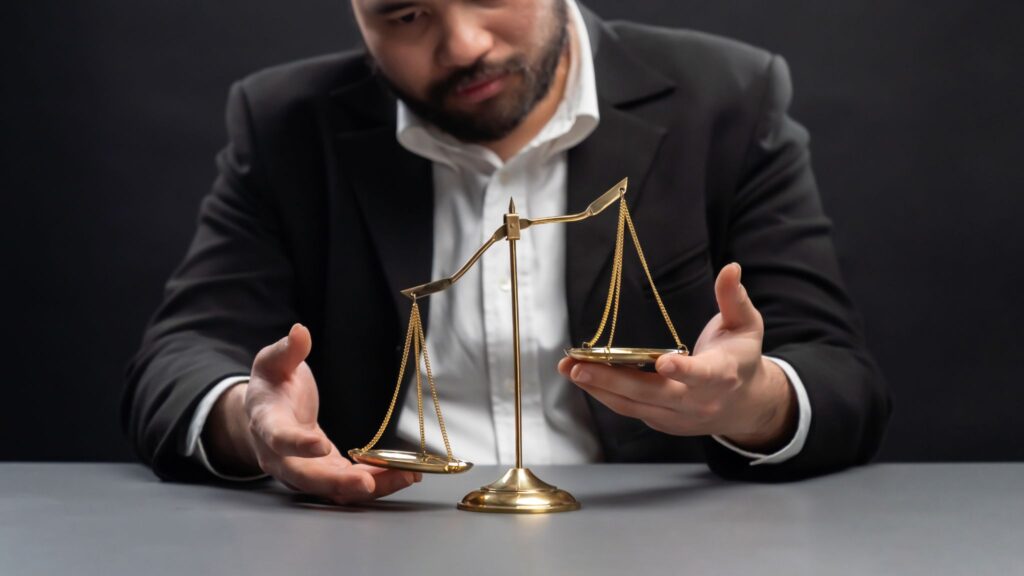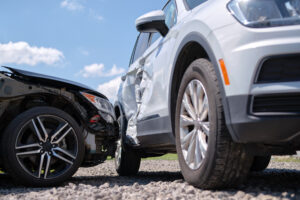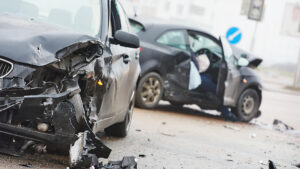
Without liability laws, it would be difficult (if not impossible) to hold a person or business legally responsible for unlawful and wrongful acts that cause harm. You might not be able, for instance, to sue someone who crashed their car into yours and caused a substantial monetary loss. The company that sold you a defective product might not face accountability if it weren’t for liability laws.
Thompson Law believes in educating and empowering clients regarding their legal rights. Below is a general rundown of Georgia liability laws, a resource we hope will give you an idea about the potential validity of your personal injury case.
Georgia liability laws set forth rules on determining the legal responsibility a person or entity has when they cause another person or entity to suffer losses. Liability laws can overlap with negligence and duties of care, two important legal principles often relevant in personal injury cases.
Someone can also be liable for damages (monetary losses) if they commit a crime. Arson, for instance, carries criminal penalties but also results in property damage. If an arsonist burns down a family’s house, the family can file a lawsuit against the arsonist for damages. The arsonist would, therefore, have civil and criminal liability. While a government prosecutor can bring a criminal case against the arsonist and seek prison time to punish them, the private property owner whose home burned down may bring a civil case to sue the arsonist for monetary damages.
Several factors can affect the exact nature of a person’s liability, including the location of the harm-causing incident and the status or position of the tortfeasor (person who caused the harm).
Premises liability cases concern injuries or harm someone incurs while on another person’s property. Property owners and managers have a general obligation (duty of ordinary care) to keep their premises free of hazards. If they fail to do so and someone suffers injuries while on their property, the owner or manager may be liable for the victim’s damages.
The exact duty of care property owners have depends on the status of the person who suffered injuries. For example, businesses generally have a higher level of care for shoppers on their premises than a homeowner does for guests at a Super Bowl watch party. For that and other reasons, premises liability cases can be quite complex.
Companies that manufacture or sell products have a general responsibility not to offer defective products that may cause injuries. For example, a pharmaceutical company may be liable if a new medication causes severe side effects that were not listed on the medication’s fact sheet. Strict liability often applies to companies that release defective products; this legal doctrine can make it easier for victims to prove their cases in court.
A product liability case can arise in one of three ways:
In some liability cases, the person who physically caused the victim’s losses may not be the liable party. This situation—vicarious liability—often arises when an employee harms someone while on the job.
A trucking company that encourages drivers to work longer shifts than the National Transportation Safety Board (NTSB) allows, for instance, may be liable for damages if one of its employees causes a serious accident on the roadway. However, employers may not be liable for their employees’ actions if the employees act outside of their job description.
In rare circumstances, plaintiffs do not need to prove that a defendant acted negligently in order to receive damages. The legal doctrine of strict liability applies to these situations, wherein companies or people can be liable even if they take precautions against harmful incidents.
The three primary areas of Georgia liability law involving strict liability are:
To first define a no-fault state: A no-fault state is a state that requires injured parties to pursue their damages with their own insurance companies irrespective of who was at fault. No, Georgia is not a no-fault state regarding liability and negligence. That means the person who caused injuries to someone else (or property damage) is financially liable for damages in most personal injury cases.
Beyond following an at-fault system for damages, Georgia uses a modified comparative fault system. Victims who are suing for damages in a modified comparative fault state are allowed to receive compensation if they bore some liability for the accident or incident that caused their losses. However, they may not pursue a lawsuit if they are found to be 50 percent or more at fault for their losses. Georgians can recover damages in a personal injury suit if their percentage of fault does not exceed the collective fault proportions of every other party.
The concept of modified comparative fault can be illustrated through hypothetical vehicle accidents in Georgia.
For our example, let’s envision two drivers who collided with each other at an intersection. One of the drivers ran a stop sign, which resulted in a crash with the driver who had the right of way.
It might seem that the driver who failed to stop is completely responsible for the accident, but the other driver was found to have been texting right before the wreck. After an investigation, the driver who ran the stop sign is found to be 80 percent liable for the other driver’s damages.
The driver who had the right of way suffered losses totaling $60,000. Instead of collecting the entire $60,000, they would only get $48,000 (80% of $60,000). The other driver is legally barred from collecting damages, as he was more than 50% at fault for the accident.

Defendants who are found to be liable in Georgia negligence or personal injury cases may have to pay for multiple types or classifications of damages. A skilled Georgia premises liability attorney can evaluate your case and advise you on the types of damages you may have a chance at recovering.
The first type of damages, economic, deals with verifiable (and easily quantified) monetary losses a victim suffers in a personal injury case. Medical expenses, lost wages, and diminished earning capacity (temporary or permanent) are common economic damages in liability suits.
Not every civil liability case results in physical injuries, however. Defamation cases qualify as personal injury cases because the plaintiff can suffer damages.
If, for instance, a prominent financial advisor begins emailing potential clients that one of their competitors is under investigation for embezzlement and fraud when that is simply not the case, the competitor may lose current clients or miss out on future clients. Lost business is an example of economic damages in a defamation (libel or slander) civil case.
The full extent of a victim’s losses in a Georgia personal injury case cannot always be expressed through receipts or pay stubs. Injuries—especially catastrophic ones that result in permanent physical damage—can cause emotional distress, pain and suffering, loss of companionship, and other losses that are difficult to quantify.
Punitive damages, the third and final type of damages in liability cases, may be awarded when the defendant’s actions are found to be egregious. Courts award punitive damages as a sort of punishment for the defendant and to hopefully deter other people from engaging in the same behavior.
Georgia law caps punitive damages at $250,000 per case. However, that limit may not apply in product liability cases, accidents involving impaired drivers, and cases where the defendant intentionally caused harm to the plaintiff.
The statute of limitations for many liability claims in Georgia is two years from the date of the incident that caused the losses. The statute of limitations is the window of time in which plaintiffs are legally allowed to begin legal action. The two-year statute of limitations applies to cases involving vehicle accidents, product liability, medical malpractice, wrongful death, fraud, battery, and false imprisonment.
Certain conditions warrant an exception to this two year-rule, including:
Solid, compelling evidence is critical for successful liability claims and lawsuits. A skilled Georgia liability attorney can help plaintiffs gather the evidence they need and identify potential weaknesses in their cases before the case goes to trial.
Attorneys can also help you adhere to the applicable (and numerous) legal requirements and, when appropriate, negotiate with the other party. Having an experienced lawyer guide you through the claims process can help you focus on your physical, mental, and emotional recovery.
The best time to contact an attorney about your potential liability case is right now. You want to act while the evidence is fresh and before the statute of limitations expires.
Thompson Law offers free initial consultations to every prospective client. We invite you to contact our staff for more information on Georgia liability laws and how they may apply to your circumstances.






Thompson Law charges NO FEE unless we obtain a settlement for your case. We’ve put over $1.9 billion in cash settlements in our clients’ pockets. Contact us today for a free, no-obligation consultation to discuss your accident, get your questions answered, and understand your legal options.
State law limits the time you have to file a claim after an injury accident, so call today.